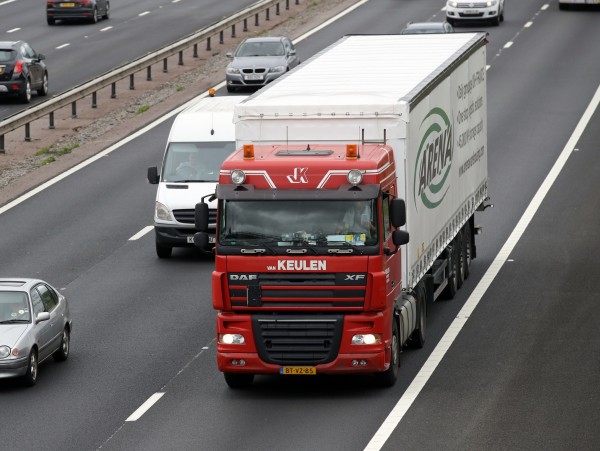“Worrying” number of lorries on British roads have defects
Government research found nearly 12 per cent of vehicles tested required prompt attention

More than one in 10 lorries on British roads have defects that require quick or immediate attention, new research suggests.
A study by the Driver and Vehicle Standards Agency (DVSA), which targeted more than 6,000 heavy goods vehicles at random, found that brake defects were the most common issue.
That comprised 28 per cent of mechanical defects found in British HGVs, and 33 per cent in foreign-registered vehicles. The overall defect split between British and foreign lorries was fairly even at 11 per cent and 12.5 per cent respectively.

Gareth Llewellyn, DVSA chief executive, said: “DVSA is committed to helping you keep your vehicle safe to drive. Brakes that don’t work, particularly in something with the weight and power of a lorry, can devastate families and their communities.
“So it’s disappointing that a minority of operators are still not performing effective checks. If we catch you with brakes that don’t work, we will take your vehicles off the road to ensure the safety of the travelling public.”
James Firth, head of licencing policy and compliance at the Freight Transport Association (FTA), told the Press Association that the FTA supports any work to identify potential problems and raise safety standards in the freight industry.

He added: “The levels of defects identified by the DVSA checks are worrying, but FTA supports its members who take the right steps to ensure they remain compliant, 365 days a year, not just on one single day.
“Our advice to operators echoes that of the traffic commissioners: do what is outlined in the industry-backed Guide to Maintaining Roadworthiness, ensure brake performance is properly monitored the whole year round, and you won’t go far wrong.”
The study found that vehicles in Hampshire are most likely to have defects, while drivers in Yorkshire and the north-east of England are most likely to commit driving hours offences.





